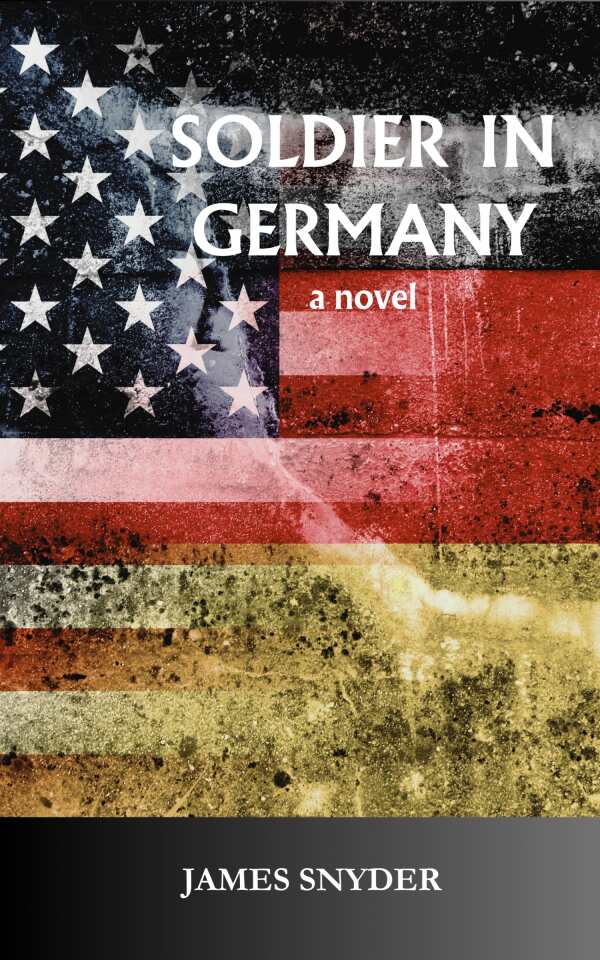Soldier in Germany
In the moving novel Soldier in Germany, a young man is pulled from the comfort of military routines by an exciting woman.
In James Snyder’s involving historical novel Soldier in Germany, a scarred Vietnam veteran heals while posted in Germany.
Chris remembers Vietnam as an endless, bloody whir. He has no explanation for why he lived when so many died. Feeling bound to the military, he accepts an assignment in Germany over a medical discharge. There, he feels “set down in an alien world, where nothing was like he knew, or expected.” He makes friends and forms routines, but his wounds remain, alongside “a feeling of marking time. More, a lack of desire to do anything at all anymore, except what the military told him to do.”
Nikki pulls Chris from this morass, sweeping into his life with her vibrant glamour. She’s an up-and-coming model, young and elusive—known to a photographer friend as “the vixen rainbow.” Both warn each other against falling in love, even as they stutter toward intimacy. There’s Nikki’s former Stasi pseudostepfather to contend with, as well as her rising fame, and Chris is plagued by dreams in which
the dead [rise] up and [come] around him like misty phantoms, rising from the skank-wet earth; the screams of suffocating mortality, closing in; the endless newsreel variations of flickering hell.
But they are also determined to remain in each other’s lives. As Chris heals by Nikki’s side, a better life seems possible after all.
The characterizations are glowing and humane, with people fleshed out in terms of their everyday complications. There are no easy heroes—even Chris falters at times. Nikki’s mother connives, but peeks into her past reveal the sympathetic origins of her survivor’s instinct. A helpful drug dealer is positioned as a somewhat tragic figure; Em, a fellow soldier, is undone by star-crossed love. Even passers-through have staying power, revealing their foibles and dreams before disappearing into the ether.
The prose is tactile and affecting, and memorable turns of phrase abound—thanks, in part, to Chris’s protonovelist viewpoint. At first stymied by the thick heat of jungle warfare, he smooths out as the novel progresses, allowing himself to appreciate the buzz of Formula One cars speeding around mountain roads, the richness of German home cooking, and the fleeting tenderness of Nikki’s touch.
So too does the novel’s pace even out in time with Chris’s healing. It is frenetic in Vietnam, jumping between terrifying and somewhat disconnected scenes without the benefit of healthy segues; amusing impressions of Chris’s team’s exercises in Germany follow, including a memorable scene in which the men ingest LSD by accident as UN peacekeepers look on. When Nikki arrives, the storytelling becomes smooth, flowing to match Chris’s gradual return to normalcy. But love perhaps cannot heal all: surprising bursts of violence move the story toward its shocking conclusion, which upends expectations.
Friendship and love are powerful, transformative forces for a battle-wounded soldier in the affecting historical novel Soldier in Germany.
Reviewed by
Michelle Anne Schingler
Disclosure: This article is not an endorsement, but a review. The publisher of this book provided free copies of the book and paid a small fee to have their book reviewed by a professional reviewer. Foreword Reviews and Clarion Reviews make no guarantee that the publisher will receive a positive review. Foreword Magazine, Inc. is disclosing this in accordance with the Federal Trade Commission’s 16 CFR, Part 255.

